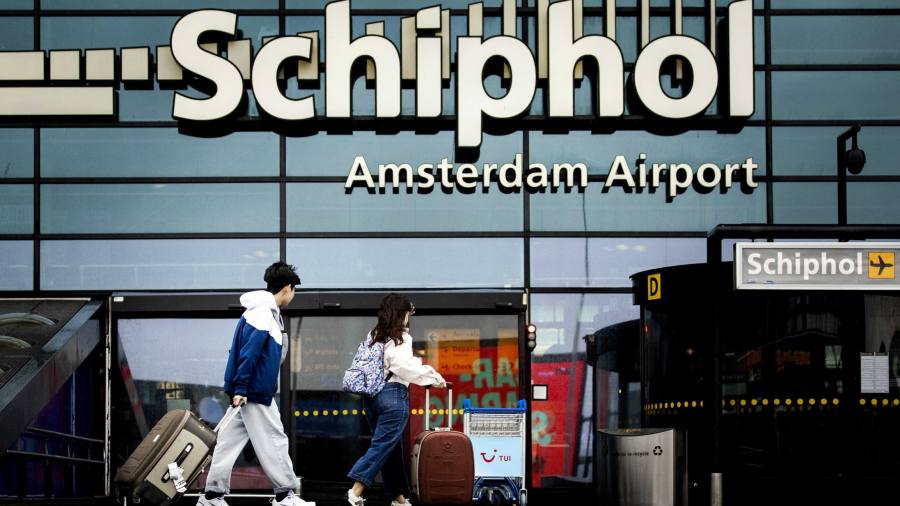
Receive free Amsterdam Airport Schiphol updates
We’ll send you a myFT Daily Digest email rounding up the latest Amsterdam Airport Schiphol news every morning.
The Dutch government has won a legal battle to reduce the number of flights at Amsterdam’s Schiphol airport, in a blow to the airline industry which fought against the rare attempt to curb air traffic on environmental grounds.
An appeals court on Friday ruled that The Hague can reduce the number of flights at the airport between the end of the year and October 2024, over-ruling a local court.
The move is the most drastic yet in the EU to tackle noise and pollution caused by the aviation industry, and was challenged by carriers including KLM, easyJet, Tui and Delta.
The government is seeking to reduce flight numbers by 8 per cent to 460,000 a year at one of Europe’s busiest hubs.
The case rested on the impact of flying on the local community, including aircraft noise and nitrogen dioxide emissions.
The aviation industry faces increasing scrutiny of its wider environmental impact and senior executives watched with alarm the Dutch government’s efforts to curb flying through legislation.
Two senior industry executives said they feared the Dutch ruling could be the start of wider moves to constrain growth in flying in Europe, which has bounced back strongly from the coronavirus pandemic.
Schiphol, which is majority owned by the state, has said it is willing to sacrifice growth in order to become “quieter, cleaner and better”, and has announced plans to consult with airlines on a ban on night flights and private jets and a reversal of plans to build an additional runway.
It is the EU’s third biggest airport and served 53mn passengers in 2022, connecting 313 destinations. But the government is under pressure to reduce nitrate emissions and pollution in the densely-packed country.
The Dutch ministry of infrastructure said the ruling represented “an important step in achieving a new balance between the economic importance of an internationally well-connected airport on the one hand, and the interests of residents and the environment on the other hand”.
Elsewhere in Europe, the French government has implemented a partial ban on short-haul domestic flights, but there are few other examples of attempts to limit the growth of flying.
Airlines and airports have argued that flying can reach net zero carbon emissions by 2050 while still growing, chiefly by turning to alternative fuels that emit less carbon than jet fuel.
Dutch flag carrier KLM said it was “disappointed” with the ruling, and that it was “currently unclear” when the capacity cuts at Schiphol would be implemented.
It added it was “convinced” it could reduce noise and carbon emissions through “cleaner, quieter, more fuel-efficient” flight operations, rather than a capacity cap.